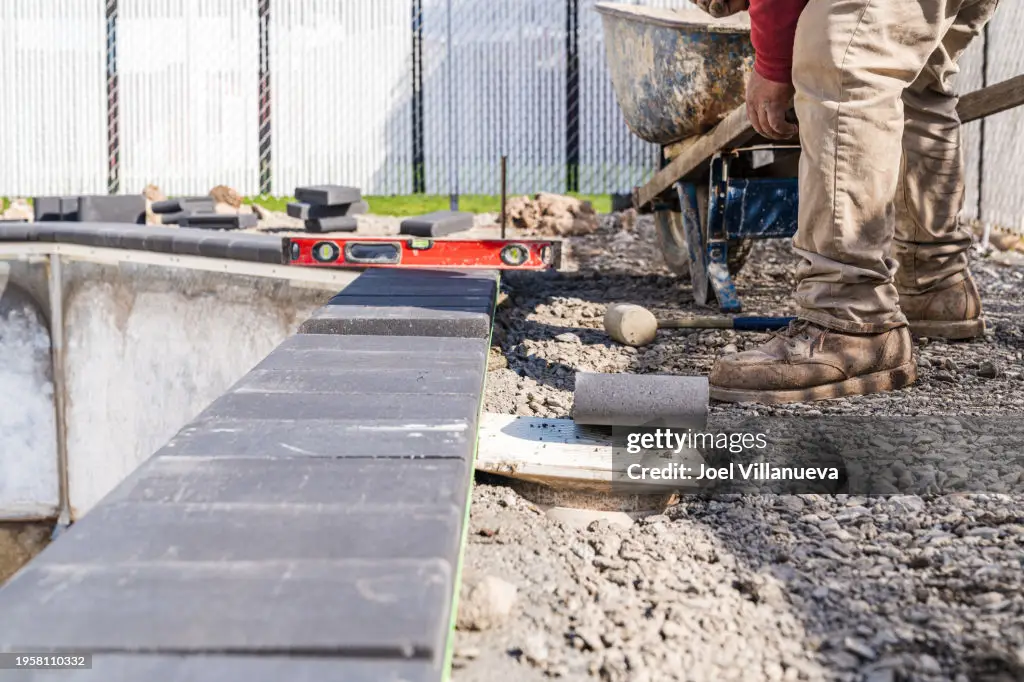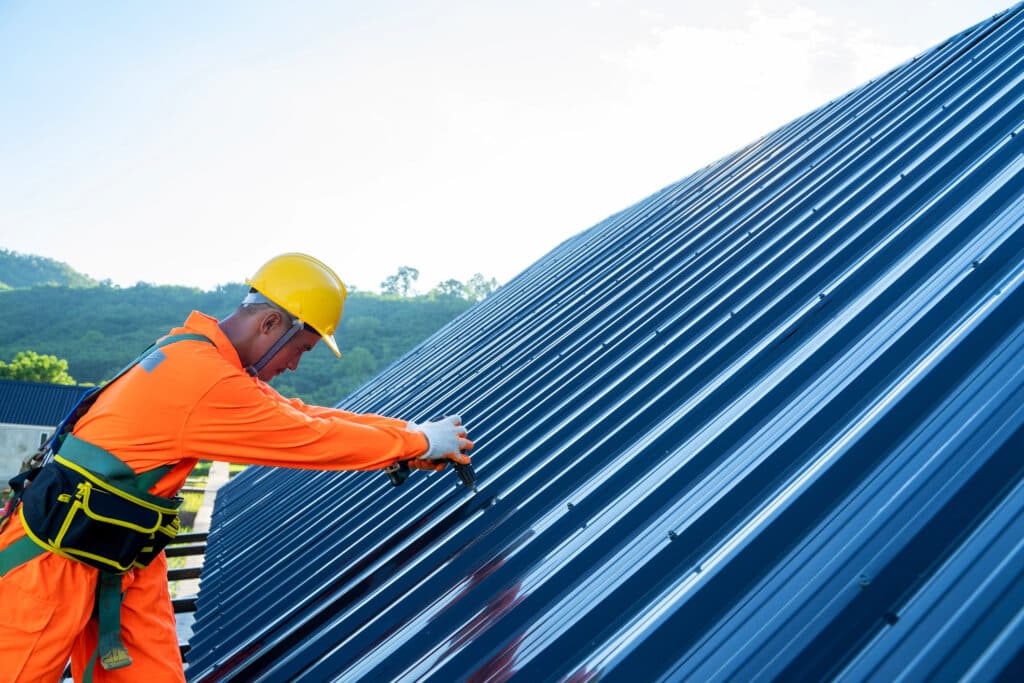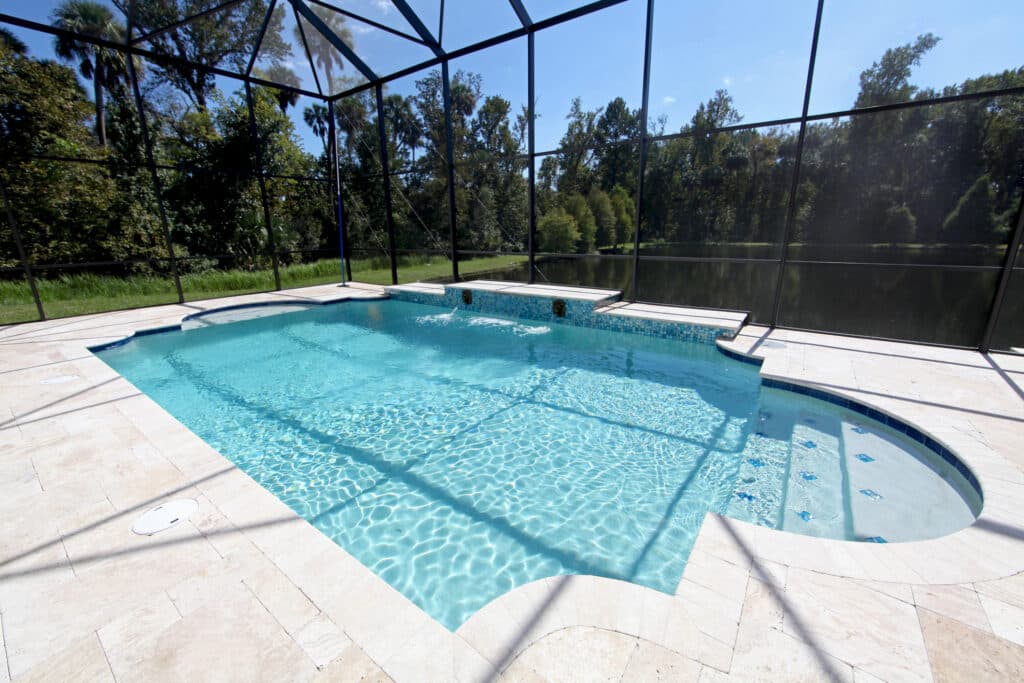A Complete Guide To Hurricane-Proofing Your Pool Area
Living in Florida or the coastal regions of Georgia means being prepared for hurricane season every year, typically from June to November. Hurricanes are some of the most destructive and dangerous natural disasters, causing millions of dollars in damages and sometimes even loss of life. While most homeowners have taken the necessary measures to protect their homes from these powerful storms, many overlook the need to protect their pool areas.
Hurricanes can wreak havoc on pool cages, decks, and equipment, leaving behind a trail of destruction. From structural reinforcements to emergency preparation protocols, creating a hurricane-resistant pool environment is crucial for long-term resilience and safety. This guide explores proven strategies and essential tips to create a more resilient pool environment that can withstand nature's fury.
Understanding the Risks

Joel Villanueva/Masonry Expertly Aligns Black Bullnose Paving Stones for New Pool Construction via Getty Images
The National Oceanic and Atmospheric Administration (NOAA) reports that the Atlantic hurricane season is expected to be above average, with 17-25 named storms, 8-13 hurricanes, and 4-7 major hurricanes. These numbers serve as a reminder of the potential devastation that can occur when a hurricane strikes. Experts say pool areas are vulnerable to high winds, heavy rainfall, debris damage, and storm surges during a hurricane. The most common risks include:
- Structural damage: High winds can cause significant structural damage to pool cages and decks, compromising their integrity and safety.
- Flooding: Heavy rainfall can cause pool areas to flood, damaging equipment and creating a breeding ground for bacteria and other contaminants.
- Debris damage: Strong winds can pick up and hurl debris at high speeds, causing significant damage to pools and surrounding structures.
- Electrical hazards: Pool pumps, heaters, and lighting are susceptible to electrical damage during a hurricane. This can create safety hazards and result in costly repairs.
- Chemical imbalance: Heavy rainfall and flooding can affect the chemical balance of pool water, leading to algae growth and contamination.
How to Hurricane-Proof Your Pool Area
Safeguarding your pool area during a hurricane requires careful planning and preparation. While there is no foolproof way to guarantee complete safety, these tips can help minimize damage and ensure long-term resilience.
Install Hurricane-Resistant Pool Enclosures
Installing a hurricane-resistant pool enclosure is one of the best ways to protect your pool area from high winds and debris. These structures are designed to withstand extreme weather conditions, making them an essential addition for homeowners in hurricane-prone areas. The Florida Building Code requires pool enclosures to be built with materials that can withstand wind speeds up to 160 mph. This includes using reinforced aluminum framing, high-impact resistant glass or polycarbonate panels, and stainless steel fasteners.
Reinforce Your Pool Deck
Pool decks are often the first to suffer damage during a hurricane, especially if made from wood or other less sturdy materials. To minimize damage and ensure safety, consider reinforcing the pool deck with concrete, brick pavers, or other durable materials.
Water Management Infrastructure
Effective drainage systems prevent flooding and water damage during a hurricane. Ensure your pool area has proper drainage systems, such as French drains or swales, to divert excess water away from the pool and surrounding structures.
Reinforce Pool Walls and Floors
During renovation or new construction, incorporating additional structural support through steel reinforcement and proper concrete thickness ensures the pool can withstand increased pressure caused by heavy rainfall and storm surges. This reinforcement strategy prevents crack formation and potential leaks that could compromise the entire pool structure.
Secure Loose Items
Anything that's not secured during a hurricane can become a dangerous projectile. This includes pool furniture, toys, and equipment. To prevent these items from causing damage, secure them in a safe location before the storm hits. If you have lounge chairs, tables, or umbrellas near the pool area, consider tying them down with heavy-duty straps or storing them inside your home.
Protect Pool Equipment
Pool equipment such as pumps, heaters, and filters are vulnerable to electrical damage during a hurricane. To minimize potential hazards and costly repairs, shut off the power supply to the pool area before the storm hits. Additionally, consider investing in surge protectors or enclosures specifically designed for pool equipment.
Shock Your Pool
Shocking your pool before a hurricane can help minimize potential contamination and make it easier to clean up after the storm. Use a high chlorine or non-chlorine shock dosage to stave off bacteria and algae growth if your pool is at risk of flooding.
Have an Emergency Plan
Finally, having an emergency plan is crucial for ensuring safety and minimizing damage during a hurricane. This includes knowing how to turn off power and gas to your pool area, evacuating if necessary, and having emergency contact numbers.
Preparing Your Pool Area for Hurricane Season
In addition to the strategies mentioned above, here are some additional tips to help you prepare your pool area for a hurricane:
- Trim trees and shrubs: Trim all trees and shrubs near your pool area before hurricane season. This will reduce the risk of debris damaging your pool during a storm.
- Secure furniture: Secure all patio furniture and other loose items in your pool area or store them indoors.
- Clean gutters and drains: To prevent flooding, ensure all gutters, drains, and downspouts are clear of debris.
- Have a backup generator: Consider investing in a backup generator to keep essential equipment like pool pumps running during power outages.
- Stay informed: Stay updated on weather forecasts and evacuation orders to ensure your safety and the safety of your pool area.
- Regular maintenance: Regularly maintain and clean your pool to ensure it's in good condition before hurricane season. This will also make it easier to prepare for a storm.
- Insurance coverage: Ensure your homeowner's insurance covers any potential damage to your pool area during a hurricane.
- Professional inspection: Consider hiring pool service professionals to inspect your pool area and make necessary repairs or reinforcements before hurricane season.
Protecting your pool area during a hurricane requires careful planning and preparation. By implementing these strategies and having a professional inspect your pool area and make necessary repairs, you can minimize potential damage and ensure the safety of your pool area. Stay informed and follow all safety precautions to protect yourself and your property during extreme weather. Remember, it's better to be overprepared than underprepared for hurricanes.


